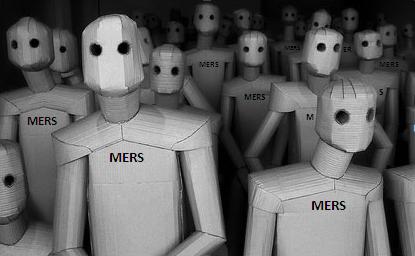MERS says it’s as an “innovative process that simplifies the way mortgage ownership and servicing rights are originated, sold and tracked.” Problem?
First, I have a problem because they never got permission from a democratically elected legislature to do it. Second, it doesn’t simplify anything, but has made it much more complicated. The new system also makes it much more difficult for homeowners to negotiate with somebody with authority to modify their mortgage loan.
It’s also inherently deceptive…
What’s wrong with MERS — Mortgage Electronic Registration System?
By Kris Hundley
Christopher L. Peterson, a consumer rights attorney and professor at the University of Utah’s law school, was confused when he first heard about MERS, the Mortgage Electronic Registration System, which was created by U.S. bankers to track mortgage loans.
“It didn’t add up,” he said of the electronic database that, unbeknownst to most homeowners, holds 60 percent of the nation’s residential mortgages. “At first I thought I didn’t understand, but after studying it for a few years, it became clear there are basic and quite fundamental problems with MERS.”
Those problems have been exacerbated as millions of foreclosures work their way through the legal system and MERS’ role as the mortgage holder, invisible in good times, gets scrutinized when homeowners default. Peterson, who taught at University of Florida’s law school until 2008, believes MERS is a shell company that usurped the traditional role of county clerks to the benefit of lenders and the detriment of borrowers.
MERS, based in Reston, Va., and owned by its members, defends its operation, saying, “MERS has been designed to operate within the existing legal framework of all 50 states.”
Today, Peterson will testify before the U.S. House of Representatives Judiciary Committee, which is investigating the foreclosure crisis. Earlier this week, he told the St. Petersburg Times why he believes the nation’s long-standing property records system was hijacked by mortgage bankers, creating chaos in foreclosure courts.
What does MERS do?
People talk about a mortgage loan as if it is one thing, but it is two different but related rights. The first is the right to receive payment from a borrower, and that’s embodied in the promissory note. The second is the right to foreclose or take back land that’s been pledged as collateral. The foreclosure right is created in the mortgage document. The mortgage document and the promissory note were always inextricably intertwined and transferred at the same time. But about 12 years ago, this changed with MERS.
It used to be that every time a mortgage loan changed hands, the new mortgage owner would go into the county clerk’s office and record the document, memorializing that the loan had changed hands. But since loans were changing hands five and six times in the first few months with the securitization of mortgages, the financial institutions didn’t want to record the loan assignments, particularly since they’d have to pay about $35 each time. So they designed this shell company that pretends to own all these mortgages.
Check out the rest here…
~


MERS should be irrelevant because of the origination fraud. What is going on in this country? Why can’t we get past square one? Why do we keep going and turning around and doing a 360 and going back to MERS? Foreclosure is being perpertrated through MERS but the origination fraud is at the heart of the crisis. People need to do their “due dilligence” here to save their homes because the banks did not. MERS is a phony threat and a cover up by the banks but it has proven to be an effective threat because people are not doing their homework. The origination fraud is where we all need to be looking here to save our homes from Foreclosuregate. I could give a rats ass what Jamie Dimond or any of these rich phony phony bastards have to say. I would like to say one thing to them though WHAT GOES AROUND COMES AROUND. All of the taunting by these people needs to stop and someone, anyone needs to come out with the truth. All of the lies and madness of Foreclosuregate needs to stopped right now.
MERS IS OWNED BY JP MORGAN CHASE WHO ALSO OWNS EMC EX BEAR STEARNs EMC. WHO HAD THEIR EXECS INDICTED AND ARRESTED BY THE fbI AND WHO GOT off SCOTT FREE.
ARE YOU STARTING TO SEE THE PICTURE.
JPMORGAN chase is the majority stockholder in MERS Mers is run on an EDS computer in TEXAS. allegedly anyway. is the picture starting to get any clearer. it just keeps getting better and better.
David Black
Jamie Dimon stated to CNBC that they have not used MERS since 2008. What gives?